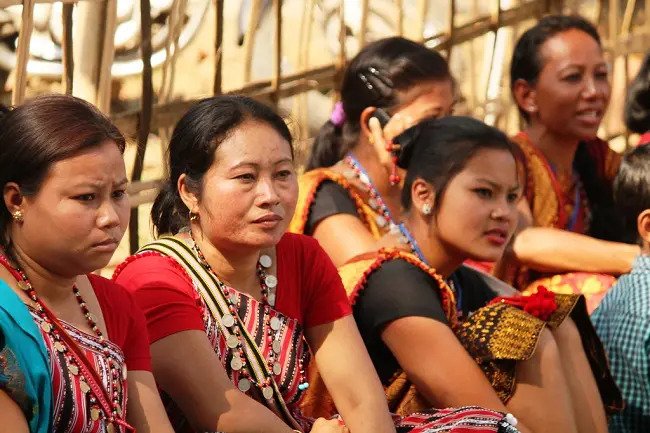Women in Northeast India are increasingly facing reproductive, sexual, and menstrual health issues, which have become a major concern. A survey of over 500 respondents in the eight northeastern states of India conducted by Gynoveda revealed that 98 percent of women in the region have experienced or are currently experiencing these health issues.
This further emphasises the need for inclusive and accessible healthcare services in the region. This concerning figure serves as a reminder of the pressing need for comprehensive, cost-effective healthcare services in the region.
The problems can be broadly divided into two categories: menstrual health and vaginal health. According to the survey, 55% of respondents experience menstrual health issues. The most common type of health issue reported is Polycystic Ovary Disorder (PCOD) which concerns 36% of the surveyed women.
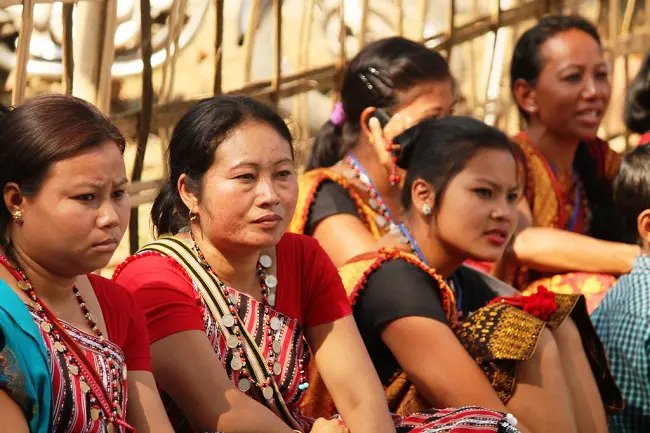
Polycystic ovarian disorder is a hormonal imbalance that can result in irregular menstrual cycles, impaired fertility, and other issues. Premenstrual syndrome (PMS) is a common health issue among women, affecting 12% of them. PMS is a combination of physiological and psychological symptoms that occur prior to the onset of menstruation.
The survey revealed that there are two broad categories of menstrual health issues: PCOD (Polycystic Ovary Disorder) and vaginal health issues. PCOD was identified as the most common issue among women (36%), while vaginal health issues (12%) were identified as the second most common issue.
A further breakdown of the survey results shows that 56% of women in the North East experience or have experienced menstrual health problems, while 42% of women experience or have experienced vaginal health problems. 85% of women over 35 and 15% under 35 took part in the survey.
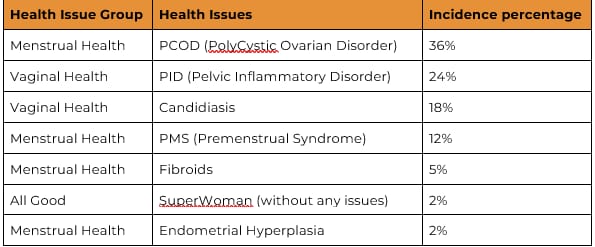
Menstrual Health and Vaginal Health – Insight
Menstrual Health
Every month, billions of people around the world go through a menstrual cycle. But unfortunately, a lot of those people, whether they’re a girl, a woman, a transgender man, or a non-binary person, don’t have the tools or resources to manage their cycle in a healthy way.
When it comes to menstruation, it’s a big deal for teens because it’s a new stage in their lives, but it can also be a time of stigma, harassment, and social exclusion. Plus, many transgender men and women face discrimination because of who they are, so they don’t have access to the resources they need.
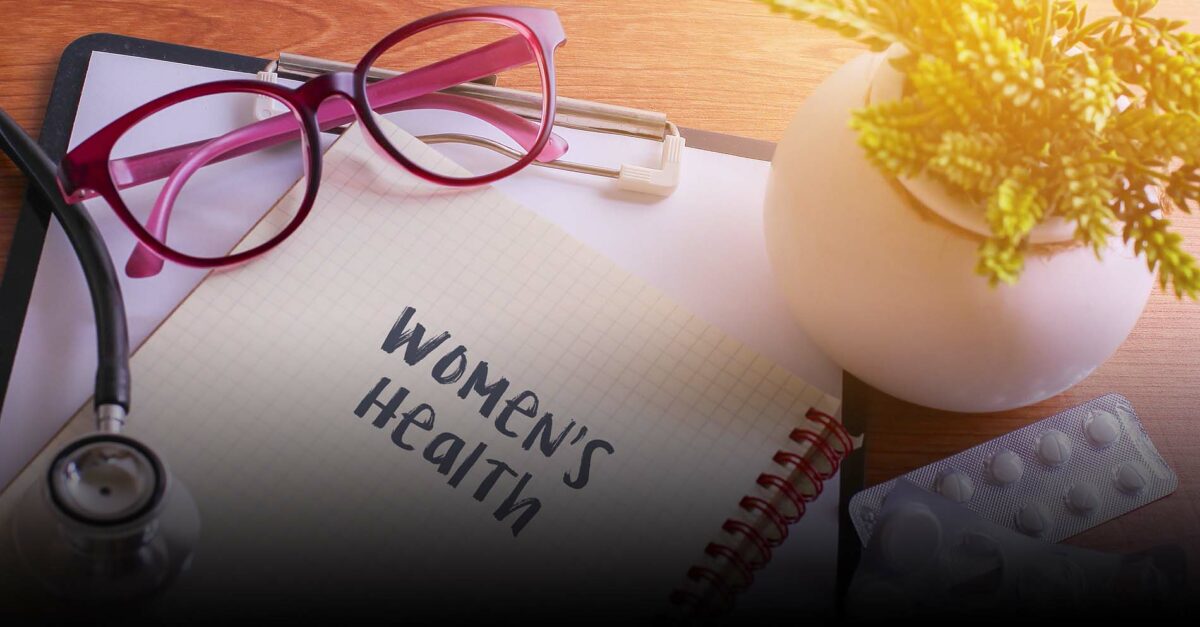
Periodic health and hygiene issues can be exacerbated by a variety of factors, including gender-based inequalities, discriminatory social practices, cultural customs, poverty, and a lack of access to basic services such as toilets and menstrual hygiene products.
This can have a significant impact on the lives of millions of individuals, including restrictions on their mobility, personal decisions, school attendance, and involvement in social life. Furthermore, it can also have a negative impact on their safety, leading to additional stress and worry. These issues are especially acute during humanitarian crises.
Vaginal Health
Vaginal health isn’t just about your sex life.It is very common today. Women’s vaginal health is one of the most important aspects of overall health. Ayurveda addresses the underlying causes of menstrual and vaginal disorders by providing a long-term solution.
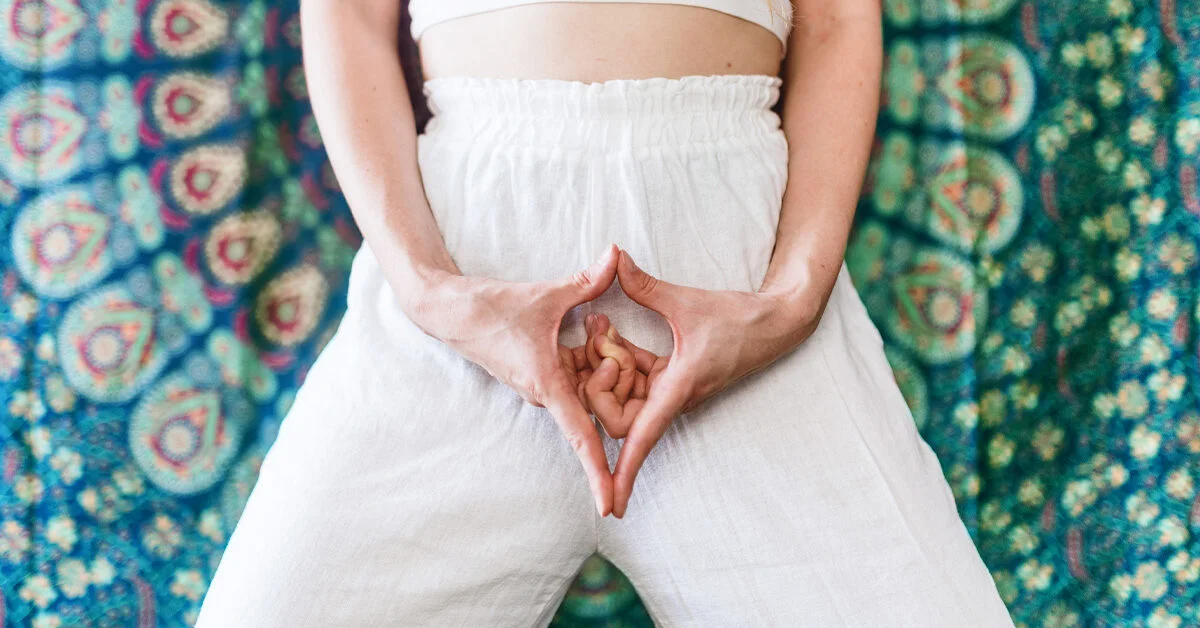
PID is characterised by a bright, watery, white discharge on non-period days. Candidiasis, on the other hand, is characterised by a thick discharge non- periods day. Women with PID or candidiasis may experience lower abdominal pain, vaginal discomfort, itching, and social shame.
About Gynoveda Survey
Gynoveda Founder Vishal Gupta, who worked with the doctors to develop the period test, said, “This is the biggest survey we’ve ever done on menstruation and vaginal health.
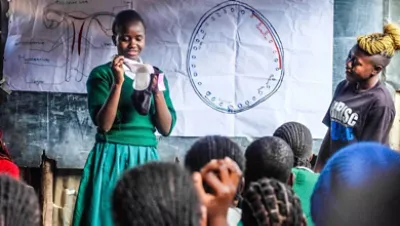
It’s been designed in a way that women can share their intimate health information in a safe and private way. This survey allows us to create authentic and affordable Ayurveda solutions that help women break free from these issues.”







